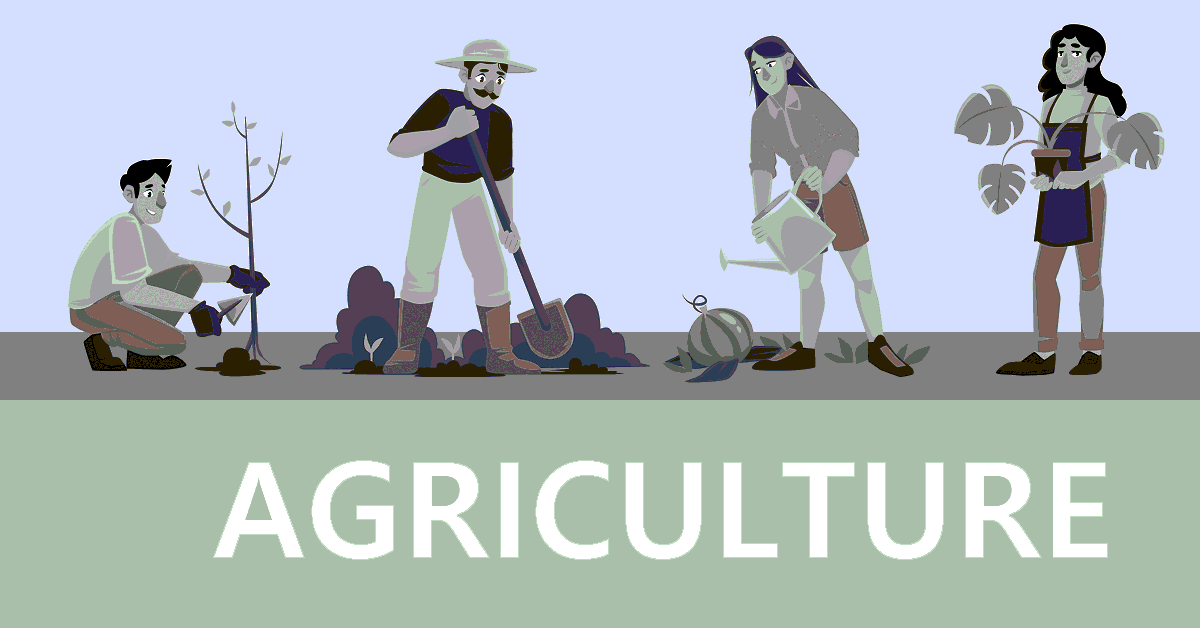
Virtual water trade is a concept that has gained significant attention in recent years, particularly in the context of agriculture and water management. Virtual water refers to the amount of water required to produce a certain agricultural product, which is then embedded in the product when it is exported to another country. Virtual water trade refers to the trade of these water-intensive agricultural products between countries.
The concept of virtual water trade involves the export of water-intensive products from regions with water abundance to regions with water scarcity. By doing so, virtual water trade enables countries to conserve their own water resources and reduce their water footprints, while still meeting their food needs through imports. In this way, virtual water trade can help to alleviate water scarcity and promote economic sustainability in agriculture.
In this article, we will explore the concept of virtual water trade in agriculture and its impact on global food production, water conservation, and economic sustainability. We will discuss the benefits and challenges of virtual water trade, as well as its potential for shaping the future of sustainable food production and water management.
What is Virtual Water Trade?
Virtual water trade refers to the trade of water-intensive agricultural products between countries. When a country exports these products, it is essentially exporting the virtual water used in their production. This has significant implications for water management, as it allows countries with water scarcity to conserve their own water resources by importing virtual water through trade.
For example, if a country like India, which is water-stressed, exports rice to a country like the United Arab Emirates (UAE), which has a more abundant water supply, it conserves its own water resources while providing food to the UAE. The virtual water trade of rice between India and the UAE is a good example of how this trade can impact water conservation and economic sustainability.
Benefits of Virtual Water Trade
One of the key benefits of virtual water trade is that it helps to optimize the use of water resources in food production. By exporting water-intensive products from water-abundant regions, virtual water trade allows for more efficient use of water resources in food production, reducing the overall water footprint of food production.
Another benefit of virtual water trade is that it can contribute to a more sustainable global food supply. By enabling countries to meet their food needs through imports, virtual water trade can reduce the pressure on local food production, conserving water resources and promoting sustainable food production practices.
In addition to its benefits, virtual water trade also poses some challenges, such as the potential for trade imbalances and unequal distribution of water resources. For example, countries with water abundance may be tempted to export water-intensive products, regardless of the impacts on local water resources and food production. This can result in unequal distribution of water resources and potentially harm local food production and water management practices.
- Water Conservation: Virtual water trade is a powerful tool for reducing water scarcity and promoting water conservation. By optimizing the use of water resources in food production, virtual water trade can contribute to a more efficient and sustainable global food supply.
- Economic Sustainability: Virtual water trade can also contribute to economic sustainability by allowing countries with water scarcity to conserve their water resources while still providing food to other countries. This trade can also generate economic benefits by creating new markets and opportunities for countries that are water-rich but food-poor.
- Improved Food Security: Virtual water trade can also improve food security by allowing countries with water scarcity to import food products that they would not be able to produce themselves. This can help to address food insecurity and malnutrition in developing countries.
Challenges of Virtual Water Trade
Despite its benefits, virtual water trade also poses some challenges, such as dependence on other countries, environmental concerns, and political and economic instability. However, by addressing these challenges and promoting sustainable virtual water trade practices, we can work towards a more sustainable and secure global food system.
- Dependence on Other Countries: Virtual water trade can create dependence on other countries for food supplies, which can be a challenge for countries with limited water resources.
- Environmental Concerns: Virtual water trade can also have negative environmental impacts, such as increased greenhouse gas emissions from transportation and decreased water quality in the importing country.
- Political and Economic Instability: Political and economic instability in the importing country can also pose a challenge for virtual water trade, as it can disrupt trade and reduce food security.
To address these challenges, it is important for policymakers to implement sustainable virtual water trade policies that promote water efficiency and conservation, while also ensuring equitable distribution of water resources. These policies can include regulations on water use in agriculture, water management strategies, and incentives for water-efficient practices in food production.
Conclusion
Virtual water trade is a concept with significant potential for shaping the future of sustainable food production and water management. By optimizing the use of water resources in food production, virtual water trade can contribute to a more efficient and sustainable global food supply, while also reducing water scarcity and promoting economic sustainability.
"Virtual water trade is a powerful tool for reducing water scarcity and promoting economic sustainability in agriculture. By optimizing the use of water resources in food production, virtual water trade can contribute to a more efficient and sustainable global food supply," says an expert in the field.
According to the Food and Agriculture Organization (FAO), the virtual water trade of agricultural products accounts for approximately 60% of the total global water footprint of food production. This highlights the significance of virtual water trade in agriculture, as it has the potential to conserve water resources and promote economic sustainability in food production.
Agricultural Science

